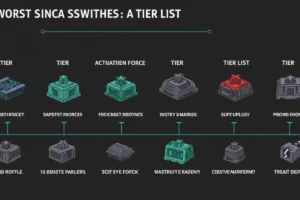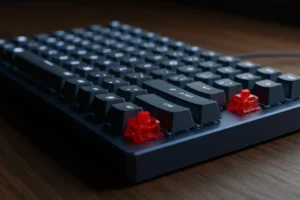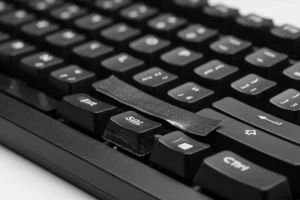Hello everyone, today was a complex day, the spacebar of my keyboard that I had for a long time was not taking and I saw how difficult it was and that’s why I decided to make an article about it and seriously I don’t wish this on anyone lol
But that’s exactly what I decided to test: typing without a spacebar for 24 hours straight. At first, it sounded like a silly challenge. But let me tell you—by the end, it changed the way I see typing forever.
In this article, I’m going to tell you how I survived the challenge, what tools I used, what problems I faced, and how this made me appreciate the little things we take for granted every single day.
It’s not just a tech experiment—it’s a weird but eye-opening journey into how keyboards shape our lives. And yes, even Homer Simpson would understand it all. 🍩💻

The Spacebar: The Unsung Hero of the Keyboard
Let’s be honest—nobody talks about the spacebar, even though it’s the most used key on any keyboard.
Here’s why the spacebar is so important:
- It separates words. Imagine everywordyoutypebeinglikethis.
- It improves readability. Sentences look cleaner and are easier to understand.
- It affects speed. Without it, you have to find weird ways to simulate spacing.
- It’s central. Both thumbs naturally rest near it.
I never realized how much I rely on it until I was forced to work around its absence. For context, I’m someone who writes every single day. For me, the keyboard is not just a tool—it’s a lifestyle.
🧠 Fun Fact: According to this study, the average person presses the spacebar almost 6,000 times a day.
The Rules of the Challenge: No Spacebar, No Excuses
For the full 24 hours, I had to avoid using the spacebar entirely. That meant I had to find creative and functional ways to keep typing while still making my text readable. No cheating, no speech-to-text hacks—just me, my keyboard, and a stubborn will to see this through.
The Setup:
- I removed the spacebar physically from my keyboard. (Just to avoid any temptation 😅)
- I used a basic text editor and browser. No grammar checkers or AI tools.
- Every sentence I wrote had to be readable—so I used underscores, hyphens, and even emojis as spacers!
Alternative “spacebar” techniques I tried:
- Using underscores instead_of_spaces
- TypingWithCapitalLettersToSeparateWords
- Inserting random dots. between.words.
- Using emoji spaces like 👀
- Replacing space with the tab key (although this looked very awkward)
I also kept a small log of my activities. And let me tell you—writing emails, replying to messages, and blogging without a spacebar was torture.
🖱️ Read more about keyboard modifications here: How to Build a Custom Mechanical Keyboard for Under $100
The Struggles Were Real: Typing Turned Into a Nightmare 😱
At first, I thought it would be a fun little game. But things got real, real fast. Here’s what happened:
- Emails became gibberish. My professional messages looked like a coding error.
- Search engines got confused. Google had no idea what I was trying to say.
- Social media posts were unreadable. My followers thought I was having a meltdown.
- Productivity dropped hard. I was spending more time trying to make things readable than actually typing.
Common problems I faced:
- Muscle memory kept hitting the non-existent spacebar.
- Auto-correct made things worse.
- Punctuation? Almost impossible.
- Markdown formatting broke in blog posts.
I also tried playing games, especially ones that required keyboard input. You can imagine how that went. 😵💫
🎮 Curious about gaming keyboards? Check out Gaming Keyboards vs Productivity Keyboards: What’s the Difference?
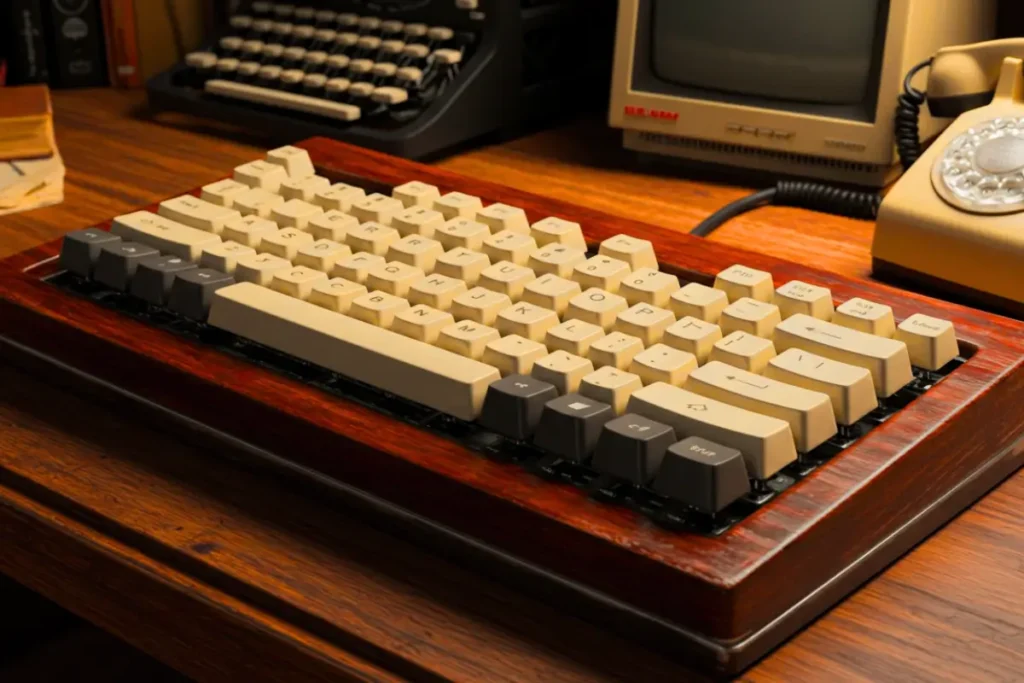
The Unexpected Lessons I Learned 🤯
Honestly, this challenge humbled me. It showed me how much we take good design for granted. Keyboards have evolved for a reason—and the spacebar is a result of generations of usability testing.
Here’s what I learned:
- The human brain is highly adaptable. By hour 12, I was typing with underscores like a pro.
- Simplicity in design is powerful. One key makes a world of difference.
- Even annoying keys (like the caps lock) have their purpose.
- We don’t need more keys—we need smarter layouts.
By the end of the 24 hours, I had developed a newfound appreciation for traditional keyboards. I also got curious about alternative layouts, like split keyboards, ortholinear setups, and even keyboard-less input tools.
📖 Explore more unusual keyboard designs: The Most Unique Keyboards Ever Created
Could the Future Be Keyboards Without Spacebars?
Okay, this might sound crazy. But what if, just maybe, future keyboards didn’t need a spacebar? Could voice typing, gestures, or predictive AI completely replace it?
Potential replacements for the spacebar:
- Touch gestures on glass keyboards
- Voice input (though not ideal for privacy)
- Auto-spacing AI (already being used in smartphones)
- Smart buttons that do multiple actions
- Context-aware spacing tools in software
Still, I believe that unless we ditch physical keyboards entirely, the spacebar isn’t going anywhere anytime soon. It’s just too good at what it does.
📈 Check out the history of typing tools here: The Evolution of Clicky Switches: From Typewriters to Today
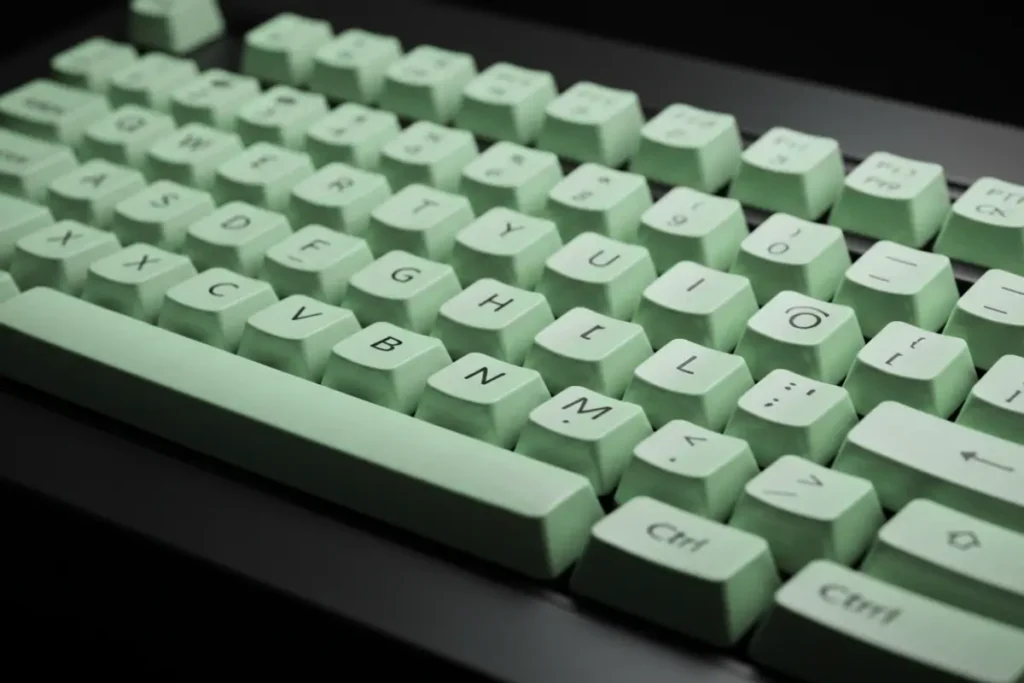
See More
- The Best and Worst Mechanical Switches: A Tier List
- Mechanical Keyboard Brands Ranked from S-Tier to D-Tier
- How to Make Your Keyboard Quieter Without Replacing It
Final Thoughts: I Will Never Take the Spacebar for Granted Again
Spending 24 hours typing without a spacebar might sound like a quirky experiment, but it genuinely opened my eyes to the power of smart keyboard design.
We often focus on flashy features—RGB lights, mechanical switches, hot-swappable keys—but forget the simple tools that make everyday typing possible.
Would I recommend this challenge to others?
Overall it was difficult but I would like to challenge you, can you use a keyboard without space for a day?
💡 Want to learn more about how keyboard design influences your experience? How Keyboards Are Designed: A Look Behind the Scenes
If you liked this article, don’t forget to share it with your friends and comment your thoughts below! 💬
➡️ Explore more content like this on Keyboards Technology
